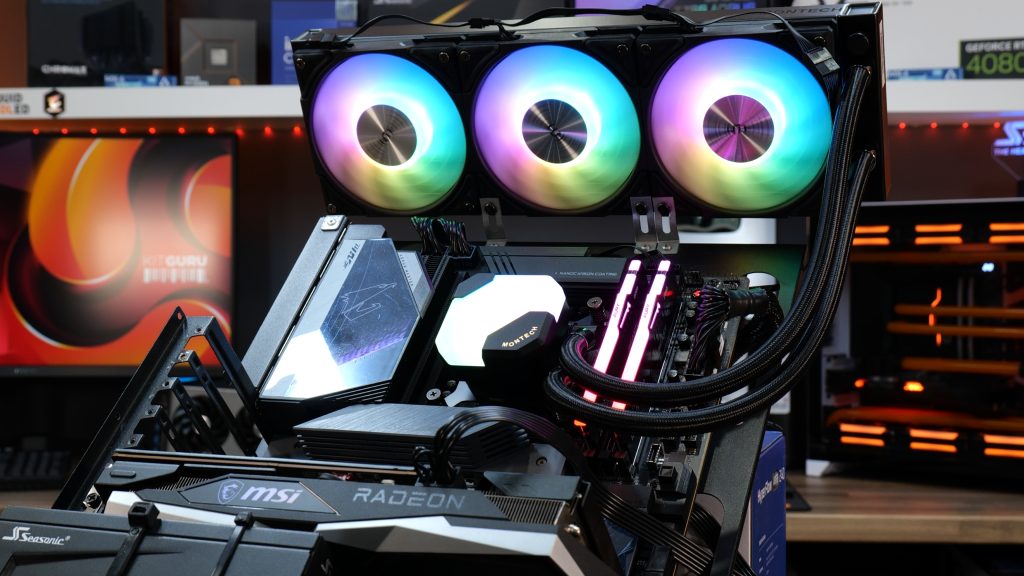
Test System Specifications:
AMD Test System
- CPU – AMD Ryzen 9 7950X
- Motherboard – Gigabyte X670 Aorus Elite
- Memory: 32GB (2 x 16GB Modules) Kingston Fury DDR5-6000
- Graphics card: MSI Radeon RX 6600XT Gaming X
- Storage: 500GB Corsair MP600 PCIe Gen4 NVME M.2 SSD
- Power Supply: Seasonic Prime TX-1000
- Chassis: Open Test Bench
- Thermal Compound: Arctic MX-6
- O/S: Windows 11 Version 22H2
Intel Test System
- CPU: Intel Core i9-13900K
- Motherboard: Gigabyte Z790 Aorus Master
- Memory: 32GB (2 X 16GB Modules) Kingston Fury DDR5-6000
- Graphics card: MSI Radeon RX 6600XT Gaming X
- Storage: 500GB Crucial P3 NVMe M.2 SSD
- Power Supply: Seasonic Prime TX-1000
- Chassis: Open Test Bench
- Thermal Compound: Arctic MX-6
- Operating System: Windows 11 Version 22H2
Testing Methodology:
We are primarily focussing on the performance of each cooler at 100% fan speed and also when locked to 40dBA noise output. We will focus on cooling performance using a manual overclock with all-core frequency and VCORE locked to 5.2GHz/1.3v (AMD) and 5.5GHz/1.3v (Intel) and Precision Boost Overdrive performance.
- The test data is logged using HWINFO and the final 10 minutes of the data is calculated to find the average CPU temperature and CPU clock multiplier (AMD PBO Test) and then plotted in the charts.
- For testing, we use a 30-minute looped run of Cinebench R23 and record the steady-state CPU temperature at the end of the test. This ensures that the CPU has had ample time to warm up and reach a steady state under all of the coolers.
- The ambient is maintained at 19-21 degrees Celsius. Where there is variation beyond this temperature range, we add extra repeated tests to ensure consistency. However, this is well controlled now with A/C.
- We also test each cooler with at least two fresh installs (typically three) to mitigate the likelihood of poor mounting spoiling results.
- Ambient temperature and humidity are controlled via a mini split air conditioning system inside the test room. Ambient temperature is maintained between 19-21C, Temperature delta figures are shown in the charts (ambient temperature is deducted from the measured component temperature).
Test Results:
Acoustics
We’ll start by looking at noise output as this will give us a good indication of performance based on noise.
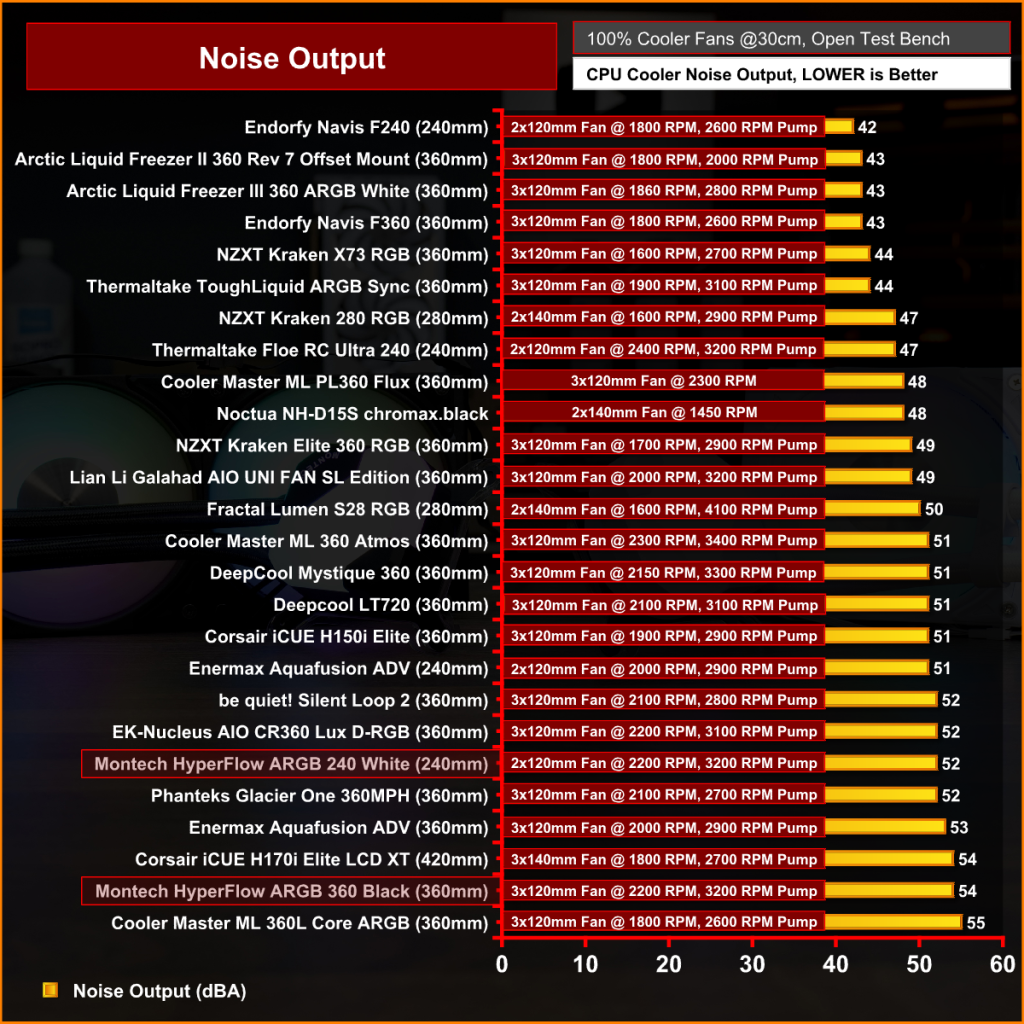
Both the 360mm and 240mm HyperFlow coolers are loud at maximum fan speed. The 360mm version will be very distracting for some at 54dBA, so tuning fan speed will be needed to get the best noise-to-thermal performance ratio for most users.
Thermal Performance
AMD Ryzen 9 7950X:
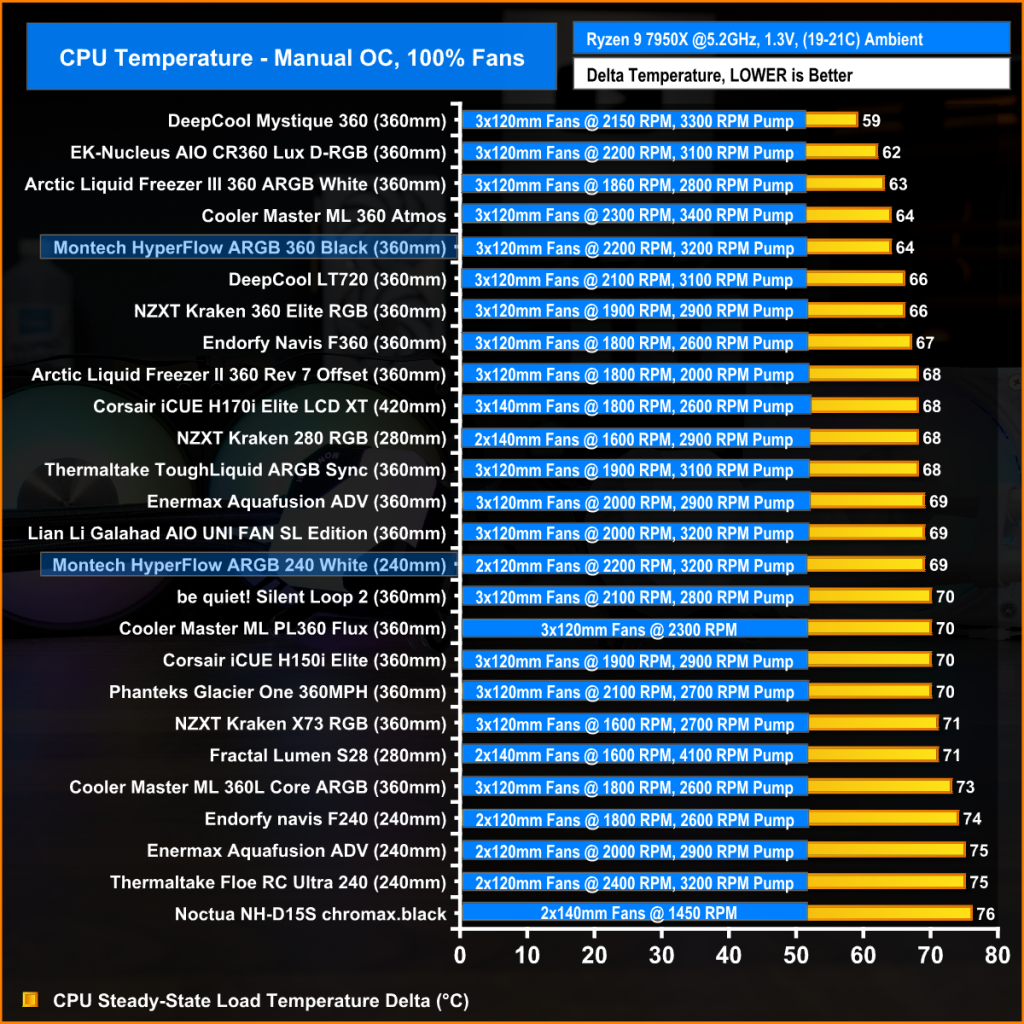
With the AMD Ryzen 9 7950X CPU manually overclocked and all cooler fans running at maximum speed, the Montech HyperFlow coolers perform excellently, keeping the average CPU temperature at 64°C over ambient for the 360 and 69°C for the 240mm.
Not quite chart-topping results but for the 360mm cooler at least it's in the top five coolers that we have tested on the Ryzen 9 7950X.
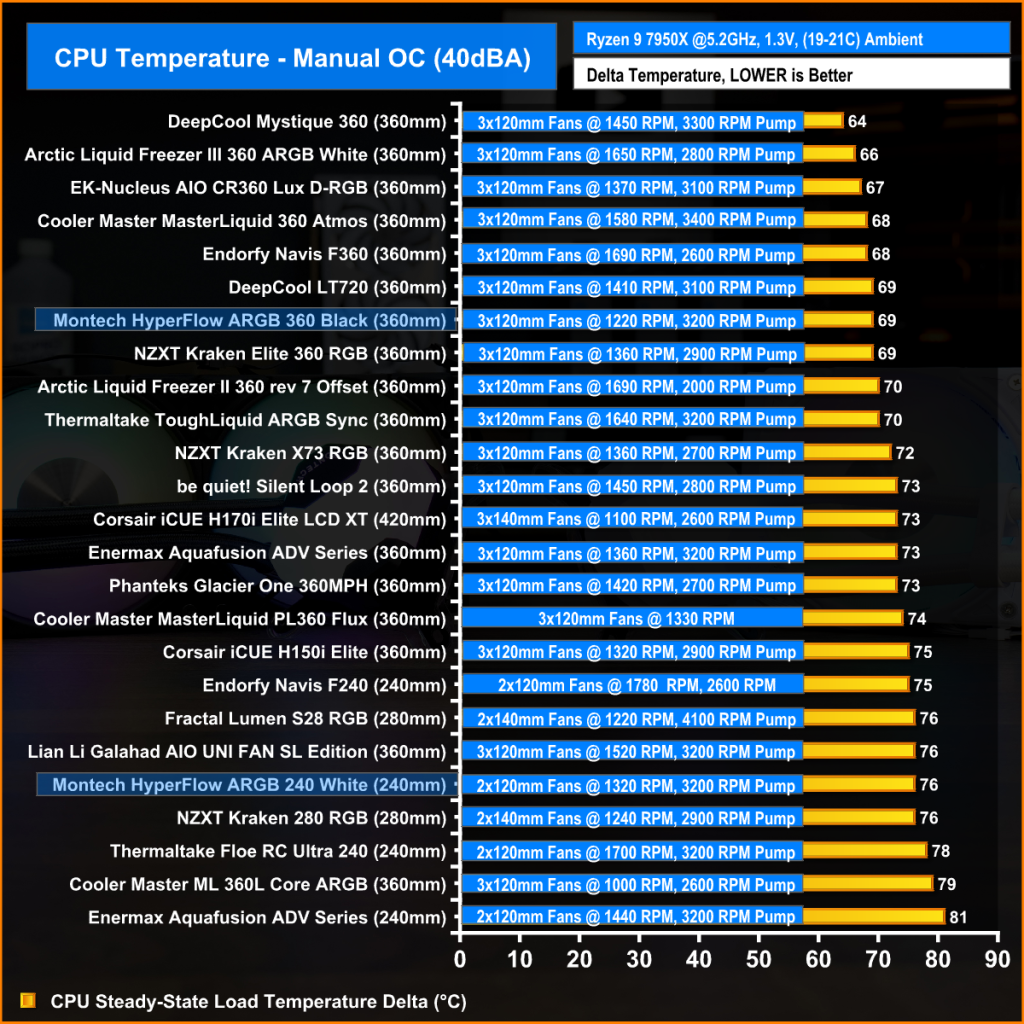
Reducing the cooler's fan speed to hit the 40dBA target means the HyperFlow fans are running significantly slower than the 2200RPM max speed. This affects the thermal performance, dropping the HyperFlow 360 out of the top five, but it still outperforms several more expensive 360mm competitors.
The 240mm HyperFlow produces similar performance to other 240mm AIOs that we have previously tested.
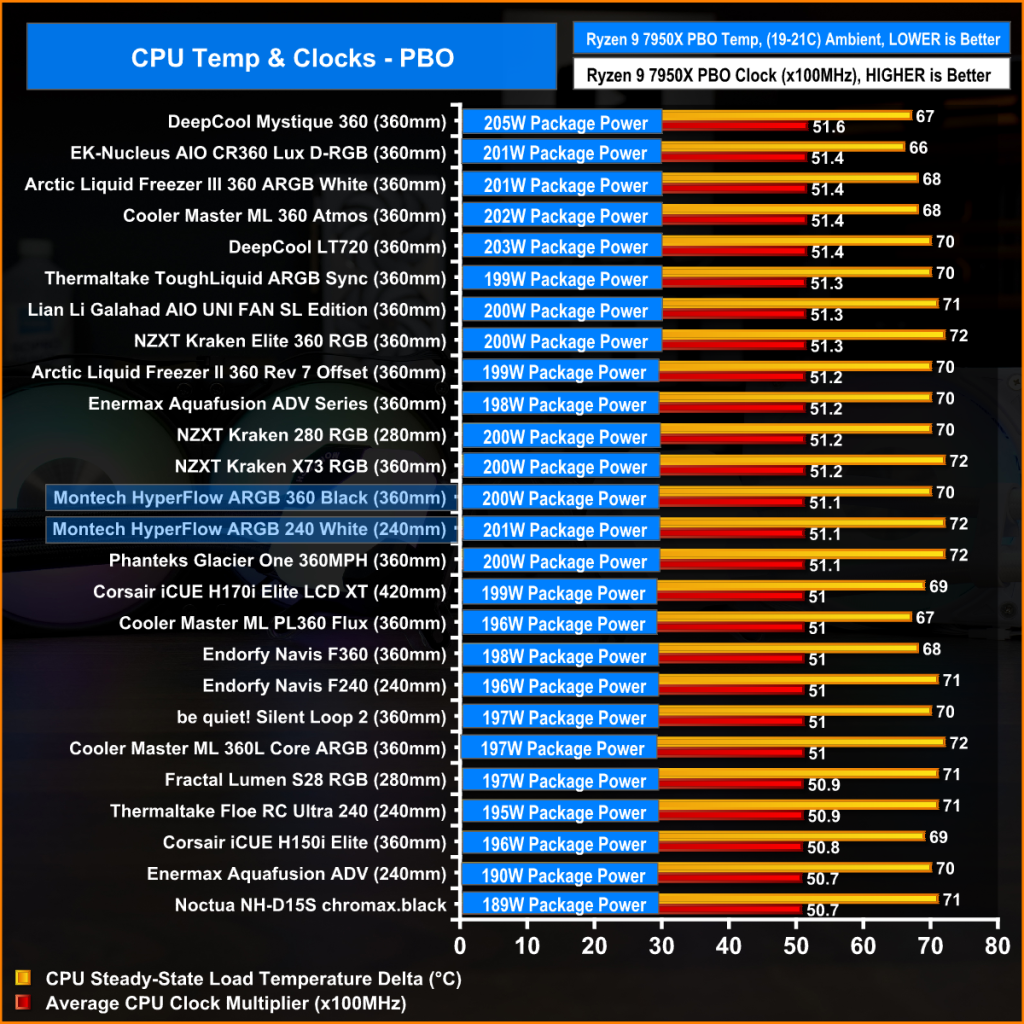
In the AMD PBO test, clock speed is the important metric as the CPU adjusts clock speed based on a target temperature, so the best coolers will produce a higher clock multiplier.
Like in the manual overlock test, both of the Montech HyperFlow coolers perform OK here, at 51.1x clock multiplier it's not the highest clock speed from the 360mm but performance is on par with other similar-priced coolers,
The 240mm HyperFlow does particularly well here, in fact, it’s the best PBO clock multiplier we have seen from a 240mm AIO. So overall thermal performance on the Ryzen 9 7950X is solid.
Intel Core i9-13900K:
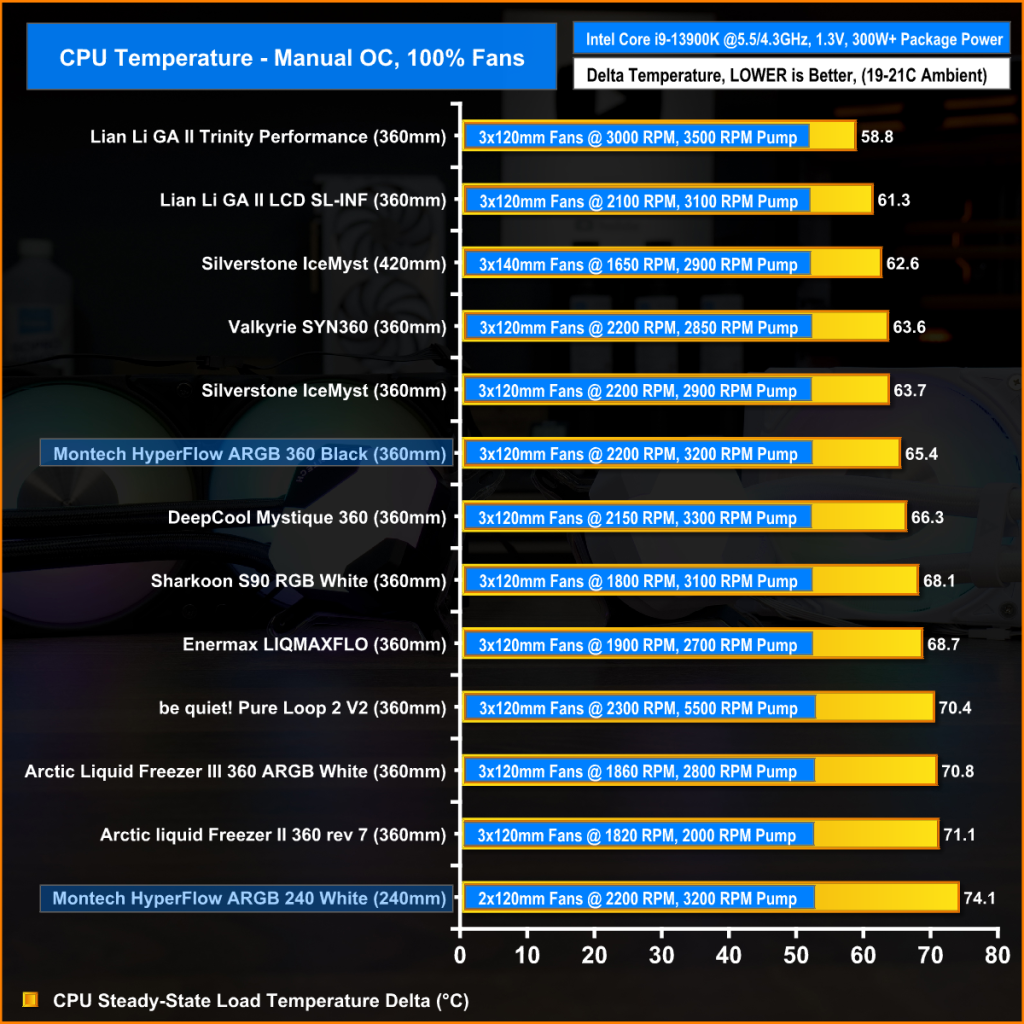
Moving on to our Intel test system we start with a fixed clock speed and VCORE with the cooler fans at maximum speed. The performance of the HyperFlow 360 is good with an average of 65°C over ambient.
It's difficult to measure the performance of the 240mm as it’s the first of its size to be tested on this system, so there's nothing similar to compare it to, but at just 3°C higher than Arctic Liquid Freezer II 360 we think that’s solid performance.
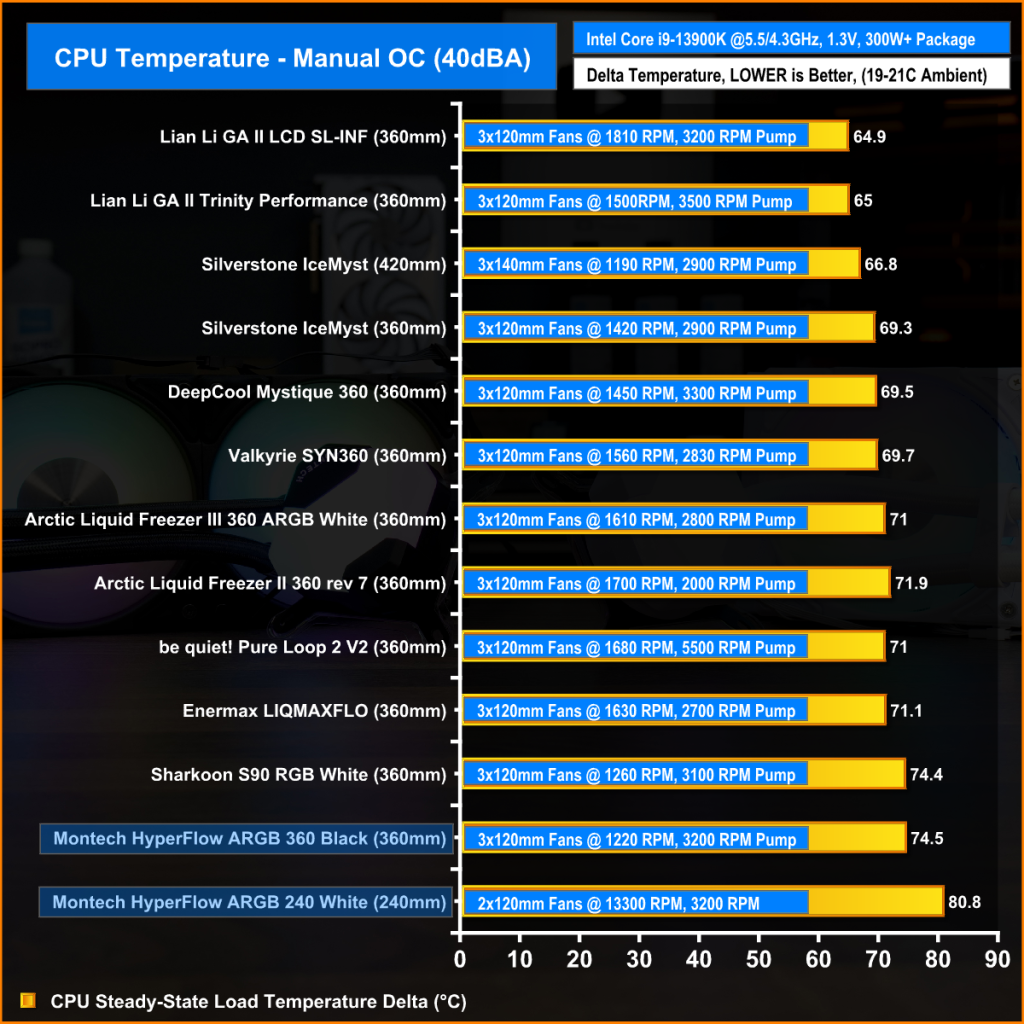
However, on the Core i9-13900K pulling 300W+ package power, the HyperFlow coolers seem to hit a wall and we see a significant drop in thermal performance when the fan speed is reduced to meet the 40dBA noise target.
At 74.5°C over ambient the 360mm is running hot but still just within Intel spec. The 240mm HyperFlow running at 80°C over ambient means we see actual CPU package temperature consistently exceeding 100°C, which is far from ideal.
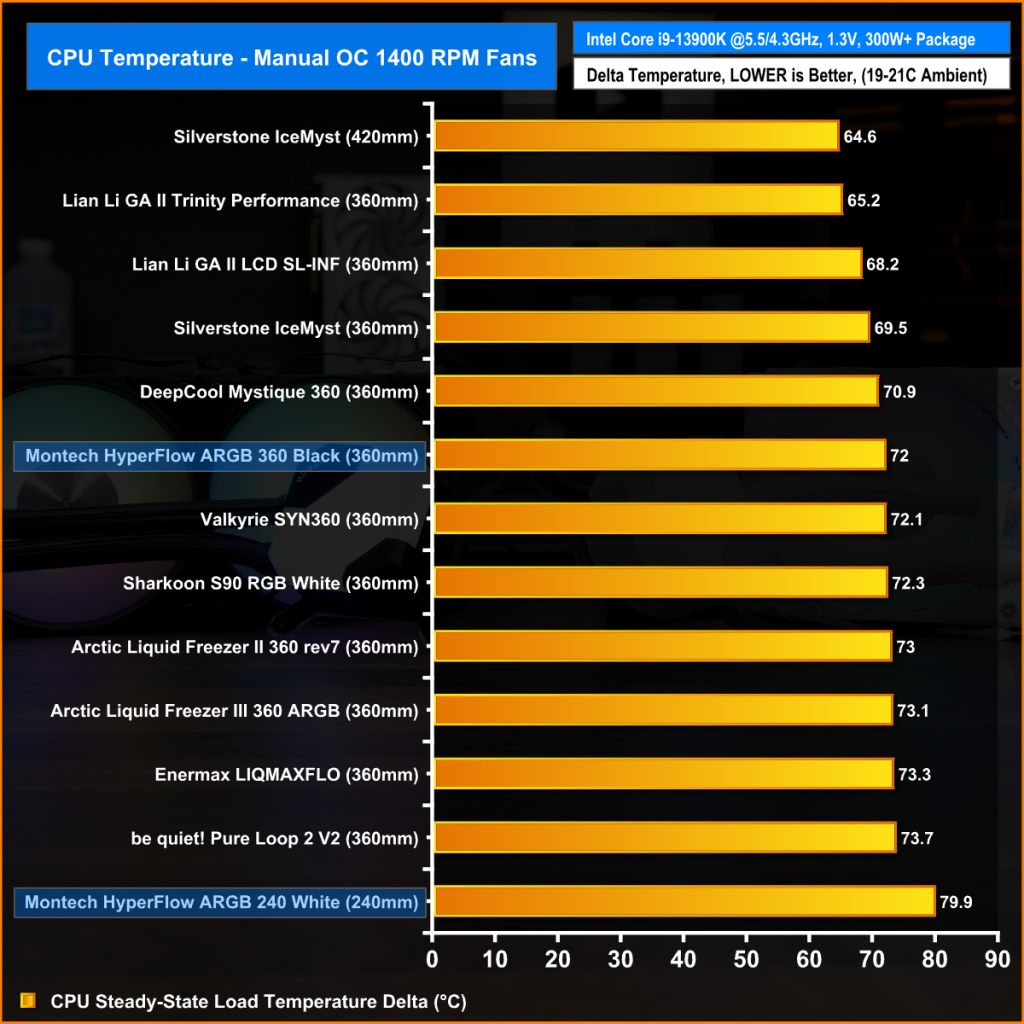
Performance of the HyperFlow 360 improves at fixed 1400RPM fans and moves it closer to the top performing 360mm coolers again at 72°C over ambient, which is ok but the 240mm still struggles to keep the CPU at a safe temperature. At 79.9°C over ambient the actual CPU package will still be hitting 100°C.
 KitGuru KitGuru.net – Tech News | Hardware News | Hardware Reviews | IOS | Mobile | Gaming | Graphics Cards
KitGuru KitGuru.net – Tech News | Hardware News | Hardware Reviews | IOS | Mobile | Gaming | Graphics Cards


